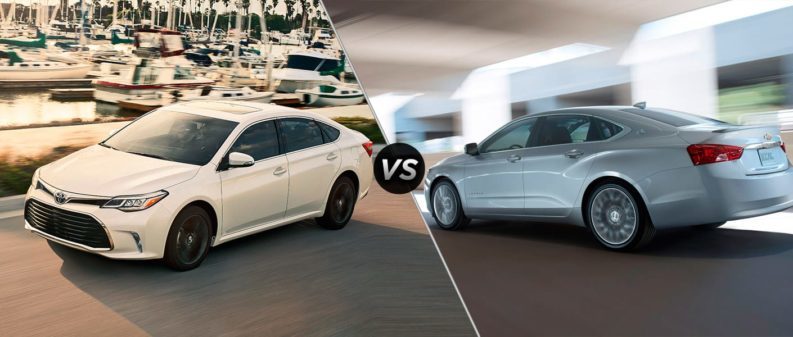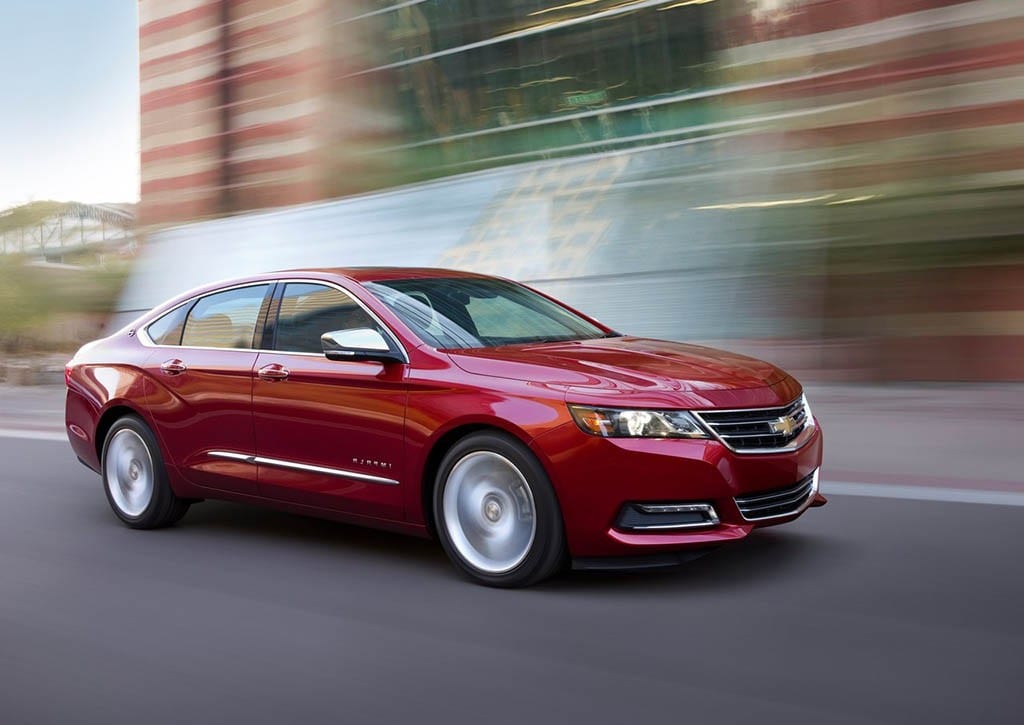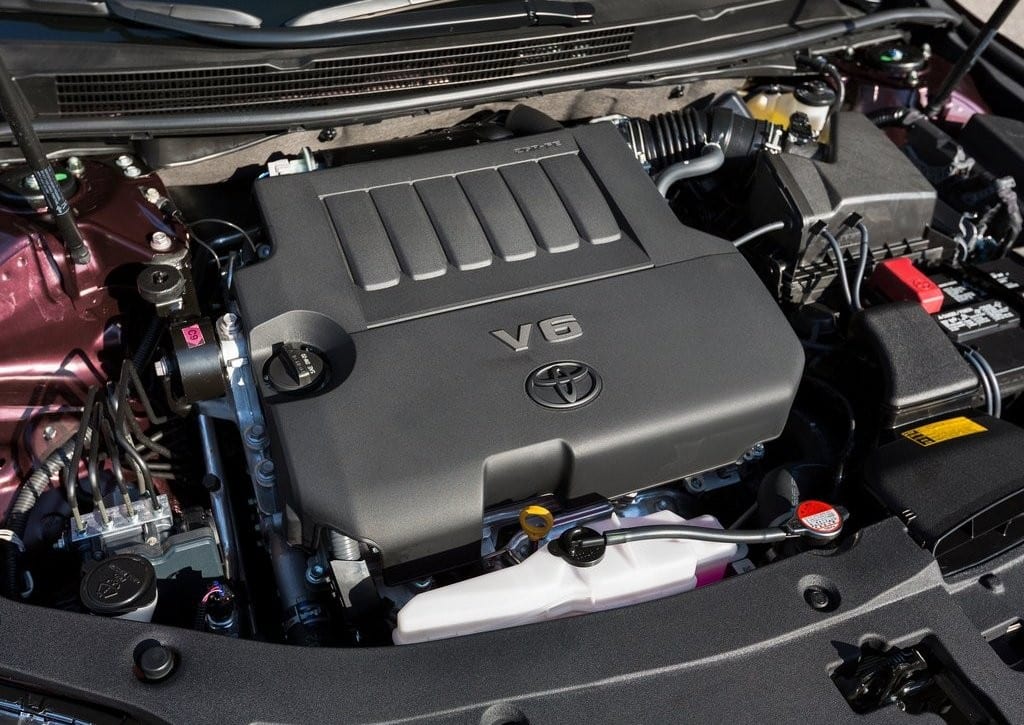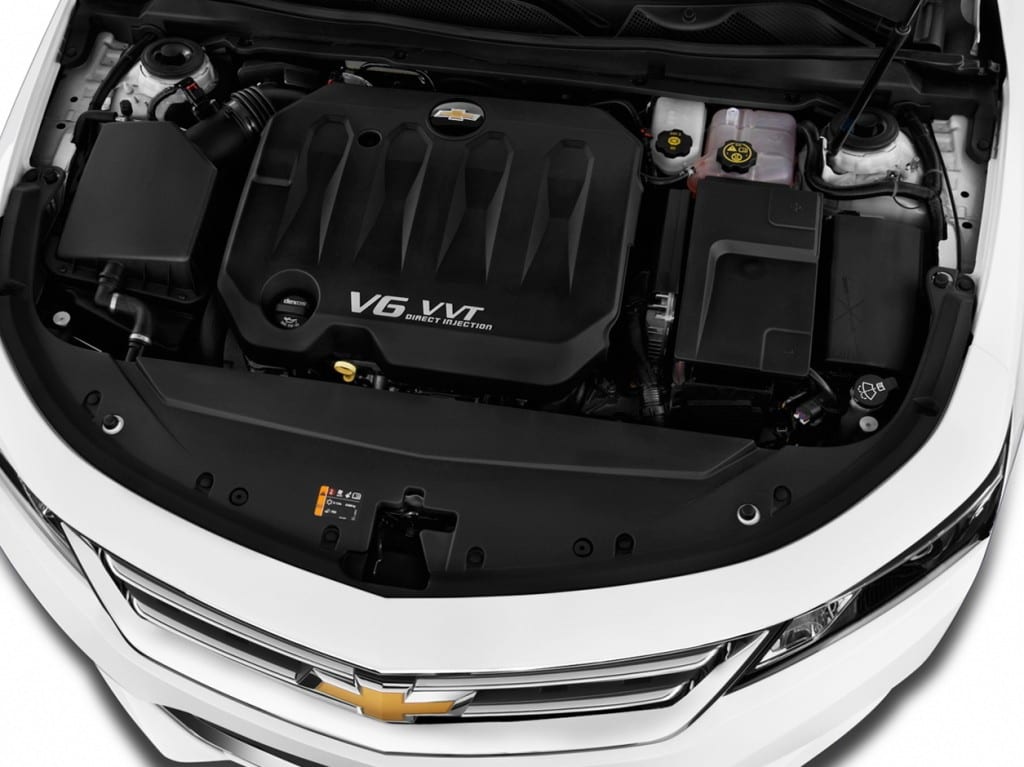With sedans like the 2016 Chevy Impala for sale, there are two important factors that need to be weighed when it comes to purchasing one: performance and safety. People might not think it, but performance is a broad term. It involves the horsepower, torque, acceleration, and fuel-efficiency of a vehicle. If a sedan lacks any of these, it will lag behind the competition on the market and potentially on the road. Safety is important simply because of the amount of distractions that are on the roads. Therefore, having a vehicle that has a solid and safe structure supported by driver-assist features will help prevent, but also protect in the event of a collision.
While many of you may already know that the Impala is as safe as safe can be, how does it stack up to the competition? Let’s pair it up against another well-known full-size sedan like the 2016 Toyota Avalon, and see just how well it holds up in these categories.
Performance
Like I said before, performance is a broad term. Therefore, it’s important to not only incorporate the specs of an engine and mpg, but also look to Edmunds to see what their team of expert reviewers has to say about the acceleration and driving capability each vehicle provides.
Engine Capabilities
As far as engine options go, the 2016 Toyota Avalon is already at a disadvantage considering that it only offers one engine choice compared to the 2016 Chevy Impala’s two engine options.
The Toyota Avalon comes standard across all trim levels with a 3.5-liter V6 engine that produces a healthy 268 horsepower and 248 lb-ft of torque. It’s a front wheel drive vehicle, with a six-speed automatic transmission paired to it. The only EPA estimated fuel-efficiency rating is one that gets 21 mpg city and 31 mpg highway. Overall, the powertrain set-up isn’t too shabby for a standard one on a full-size sedan and it does quite well in terms of acceleration.
For the Chevy Impala, drivers have two engine options. Much like the Avalon, it’s also a front-wheel drive set-up with a six-speed automatic transmission paired across trim levels. The standard engine choice is a 2.5-liter four-cylinder engine that’s rated at 196 horsepower and 186 lb-ft of torque. While it’s slightly weaker than the standard engine on the Avalon, keep in mind that it’s not as big as the 3.5-liter V6. Therefore, it’s able to return one city mpg more than the Avalon (22), and effectively tie it for mpg highway (31).
If you are looking to step up the power, then the higher trims come with a 3.6-liter V6 rated at a robust 305 horsepower and 264 lb-ft of torque. Equipped with this engine, the Impala gets an EPA estimated mpg rating of 18 city and 28 highway — which is only slightly lower than the standard V6 on the Avalon.
Acceleration
In the acceleration department, both the Impala and Avalon were able to do 0-60 mph in 6.4-seconds — with their respective V6 engines — during Edmunds testing. That means both of these vehicles are quicker-than-average when it comes to the full-size sedan market and both provide plenty of oomph to get you on the highway confidently and safely. However, this scenario poses two questions: why doesn’t the Impala’s smaller 2.5-liter offer more fuel-savings than the Avalon’s bigger V6 engine? And, why does the Impala’s stronger V6 engine only tie it with the Avalon in a 0-60 mph sprint?
The answer to both questions is because the Impala is heavier due to the cabin being shrouded in a high-strength steel safety cage. While the weight is still to be determined on Chevy’s website, it’s safe to assume it’s heavier for this reason. The Avalon doesn’t have as much steel in it as the Impala. Also, it’s in part because the Impala is larger than the Avalon.
Therefore, it’s important to note that the Impala is able to beat and/or tie the Avalon for fuel-efficiency when equipped with the smaller engine, and tie it in a 0-60 mph sprint with the V6, all while continuing to provide a larger, safer, and more solid frame than the Avalon. With that in mind, it’s clear that the Impala is the real winner here.
Safety
As far as safety goes, the 2016 Chevy Impala beats the Avalon with a perfect five stars. In the NHTSA safety crash tests, the Impala received five star ratings in both frontal crash and side crash categories, whereas the Avalon only received four stars in frontal crash ratings. Both vehicles received four stars in the rollover category. These crash tests prove, yet again, that Chevy’s commitment to building their vehicles with high-strength steel is still paying off in 2016.
Not only does the Impala beat the Avalon in the crash scores, but it also embarrassed it in Edmund’s brake testing. While the Avalon came to a stop from 60 mph in 127 ft, longer than the class average, the Impala was able to do the same type of stop in only 114 ft, which is a great result for this segment.
Driver-Assist Features
As far as preventive driver-assist features go, the Impala and Avalon share a few similar ones, such as lane departure alert with steering assist, radar-based cruise control, and forward safety awareness. However, the Impala one ups the Avalon with rear cross traffic alert — which is surprisingly lacking on the Avalon.
Also, the Avalon is only able to help prevent and protect in the event of a collision, but fails to help respond. Unlike the 2016 Impala, which has Chevy’s own OnStar Automatic Crash Response system on board. If a collision is detected with the built-in sensors, it will instantly connect your vehicle to an OnStar Advisor to see if you need help. If you do need help, or fail to respond, the OnStar Advisor will immediately send emergency services to your location via GPS technology.
With a better overall safety score in crash tests and a the lack of extra driver-assist safety features that Toyota failed to implement, the Impala is also the safer of the two.
Price and Concluding Thoughts
Here’s the real kicker – the 2016 Chevy Impala with a starting MSRP of $27,095 is also significantly cheaper than the Avalon. Since the V6 engine option is the only choice for the Avalon, it’s going to naturally cost more for the base trim. With a starting MSRP of $32,650, picking the Avalon not only makes your bank account cry, but also gets you a vehicle with one less mpg, a vehicle with the same performance as the Impala, but a vehicle that’s proven to be less safe.
It just doesn’t make sense to spend the extra money on the Avalon when the Impala is available, especially considering the Avalon’s lack of cutting-edge safety innovations. And it’s horrendous base MSRP is just the final nail in the coffin for this competition.







